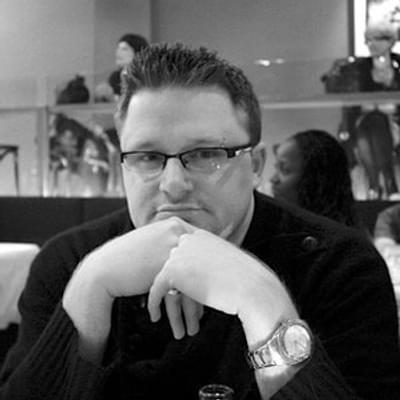Art of the Score: The Music of Hans Zimmer

Full programme:
- Sherlock Holmes: Discombobulate
- Driving Miss Daisy: Theme
- Pirates of the Caribbean: The Curse of the Black Pearl Suite
- The Thin Red Line: Journey to the Line
- The Holiday: Maestro
- Inception: Suite
- The Lion King: Orchestral Suite
- Kung Fu Panda: Oogway Ascends
- The Da Vinci Code: Chevaliers de Sangreal
- Batman Trilogy: The Dark Knight Suite
- Interstellar: Symphonic Suite
- Gladiator: Suite
- Gladiator: Now we are Free
Performers

Nicholas Buc
Conductor
Andrew Pogson
Presenter
Lotte Betts-Dean
Mezzo Soprano
Introduction
Welcome to this very special concert event with the wonderful City of Birmingham Symphony Orchestra, performing the music of perhaps the 21st century’s most influential film composer, Hans Zimmer. Tonight’s performance aims to be a little different however, as we attempt to uncover why Hans Zimmer’s scores are so magical, and what makes them tick.
For years, my good friends Nicholas Buc (tonight’s conductor), Dan Golding and I would find moments in our hectic schedules to grab lunch, or a drink, and spend 100% of the time waxing lyrical about the latest film scores. Often it included us pulling up a particular track on our phones, having it loudly play through its terrible speakers, and showing each other great moments of movie scoring magic (what great café guests we must have been!). I enjoyed this time so much that I suggested we record a podcast on the subject, not that I thought anyone would listen, but because it would be a good excuse for me to trick my friends into doing this more regularly. The ruse worked, and Art of the Score was born!
Why do I tell you any of this story, dear audience member who loves Zimmer and has likely never heard of Art of the Score? Because that original premise of wanting to spend more time with my friends, geeking-out about great moments in film music and showing each other “the best bits” is exactly how we’ve designed our concert tonight. So I invite you, our new friends, to hang out with Nick and I as we explore this wonderful music with you. This time, however, someone let us use a concert hall instead of a café, and 80 of the finest orchestral musicians in the country instead of an iPhone. Truly we are in for a treat tonight!
Andrew Pogson
Host and Creative Director
Programme notes
From Victorian London to the edge of the galaxy – the music of Hans Zimmer makes the heart pound and the imagination soar. Tonight, the CBSO salutes a giant among film composers, with music from Interstellar, Pirates of the Caribbean, Batman, Gladiator and more. Hosted by the presenters of the Art of the Score podcast, this unique concert is not to be missed.
Today, when you go to the movies, you’ll hear Hans Zimmer.
You might hear the composer himself, who is surely one of the most prolific creatives in any field working in Hollywood. In 2021 alone, Zimmer released the soundtracks for six major films, including No Time to Die and Dune, while he worked on another two scores for the following year, as well as music for four television series. Today, especially when you’re seeing the biggest productions Hollywood has to offer, chances are they’ll be scored by Hans Zimmer, who along with John Williams is one of the few film composers to become a genuine household name.
But even if you don’t hear Zimmer himself at your local multiplex, you’re still likely to hear his influence. Hollywood directors, videogame studios, and even reality television producers all want that Zimmer sound. If you go to a movie like Mission Impossible: Dead Reckoning (2023) you’ll hear music by Lorne Balfe, a protégé of Zimmer’s and a long-term collaborator at Zimmer’s Remote Control studios. If you go and see Aquaman (2018) you’ll hear a soundtrack composed by Rupert Gregson-Williams, another Remote Control associate. Or, on the small screen, tune in for an episode of Game of Thrones, Westworld, or House of the Dragon and you’ll hear yet another Zimmer mentee, Ramin Djawadi. Each composer has their own ability, their own skill, and their own sound – but each also follows in the footsteps of Zimmer, as do many who have never officially collaborated with the man himself. Zimmer is everywhere.
So how did Hans Zimmer become the man who changed the way we hear the movies?
Born in Frankfurt in 1957 to a musician mother and an engineer father, Zimmer grew up with “one foot in the music camp and the other foot in the technology camp,” as he told an interviewer in 2013. It was to prove an auspicious beginning. Despite only sustaining interest enough for two weeks of piano lessons as a child, Zimmer quickly took to synthesisers in his twenties and meandered his way through several rock bands in 1970s London including The Buggles, and Zimmer can to this day be seen on keyboards at the back of their music video for “Video Killed the Radio Star”. Falling in with veteran film composer Stanley Myers (The Deer Hunter), Zimmer apprenticed in the UK film industry before breaking into Hollywood first with his music for Rain Man (1988) and then Driving Miss Daisy (1989). He was a man in-demand in the 1990s, with his mixture of slightly dorky early digital music-making and the familiar film orchestra giving the movies he wrote music for, like Thelma & Louise (1991), Crimson Tide (1995), and The Rock (1996) a burst of fresh energy (and, in the case of The Lion King, an Academy Award for Zimmer along the way).
The new millennium, and a string of critical and financial successes in the form of The Thin Red Line (1998), Gladiator (2000, co-composed with Australian Lisa Gerrard), and then the Pirates of the Caribbean (2003—) and Batman Begins (2005-2012) franchises cemented Hans Zimmer as Hollywood’s musical man of the moment. This Hans Zimmer was a long way from the man who composed the very 1980s beat of Driving Miss Daisy. This Zimmer’s music was muscular and powerful, delving into a musical vocabulary informed by rock and pop, German art music of the likes of Wagner and Mahler, and the digital tools Zimmer used and developed along the way.
Zimmer’s music has always been negotiated through technology. Not content with the usual electronic synthesisers used by composers in the 1980s, Zimmer quickly moved on to writing music for samplers and virtual instruments, where highly sophisticated digital technology is deployed to create an orchestral sound on a single computer. Gone overnight, it seemed, were the days where a director would hear their score for the first time with hundreds of musicians at the recording studio. For Gladiator, director Ridley Scott and editor Pietro Scalia moved into Zimmer’s music studio to cut the film while Zimmer composed next door, with ideas shared, tested, and debated in real time. Today, Zimmer writes at least partly as much for computer as for orchestra.
“Hans is a minimalist composer with a sort of maximalist production sense,” says director Christopher Nolan, one of Zimmer’s most significant collaborators. From the mid-2000s the Zimmer sound became exactly this – simple musical ideas suffused into extremities. His Batman theme from The Dark Knight trilogy, for example, is just two notes, like a musical bat-signal illuminating the clouds above in its sign-like simplicity. Zimmer’s beloved ‘Time’ from Nolan’s Inception (2010) is also a case in point, with just four simple chords repeated in the same order over and over from the beginning of the piece to its conclusion. It’s Zimmer’s sense of epochal scale that makes the track: we begin ‘Time’ whisper-quiet on piano, and over the course of four-and-a-half minutes reach the full might of fortissimo symphony orchestra and Zimmer’s bag of digital production tricks. It is breathtaking. “They can just turn the music louder and louder and louder,” says Nolan, “because you realise the momentum of the film is entirely defined by the structure of the music.”
Yet the moment you think that the rest of the film industry has cottoned on to Zimmer’s style, he moves on. “You have to learn how to deal with the technology so it doesn’t drive you,” says Zimmer in a lesson that some of his imitators have never learnt.
Today, Zimmer’s career spans as wide a variety as the church organs of Interstellar (2014), the reverb-drenched synths of Blade Runner 2049 (2017), the rumble of Dune (2021), and the musical nostalgia of
No Time to Die (2021).
In all cases, what you remember is more than music. You remember the power of the soundtrack and the overwhelming emotion of Zimmer’s score. You remember music that is bigger than you are, that is bigger than the moment. You remember music that is bigger, even, than Hans Zimmer.
© Dan Golding 2024
Featured image © Concert Lab